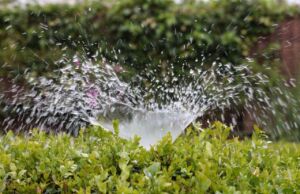Introduction to Home Pest Management
A safe and healthy home environment begins with effective pest management. Unwelcome pests, such as termites, ants, and rodents, can compromise your home’s structural integrity and pose health risks. According to experts, pests are responsible for substantial annual property damages. For instance, termites cause billions of dollars in damage yearly in the United States. Residents of Asheville and the surrounding areas often seek expert advice from termite control Asheville, NC, to learn practical strategies for dealing with these issues. Understanding the threats and implementing proactive measures are key to ensuring your sanctuary remains uninterrupted by these pesky invaders. Maintaining regular inspections and staying informed about local pest trends can make a big difference in prevention. Partnering with trusted professionals ensures a tailored approach that addresses specific concerns in your region.
DEEPER DIVE: 20 emerging business categories gaining traction in Arizona
Understanding Common Household Pests
Pests exist in many forms and dimensions, ranging from elusive cockroaches to diligent termites. Each type of pest presents unique challenges. For instance, termites are infamous for eating wood, which can seriously compromise a building’s structure if left unchecked. Cockroaches, seekers of warmth and food scraps, thrive in human environments and can trigger allergies in susceptible individuals. Rodents, meanwhile, are carriers of diseases such as hantavirus and leptospirosis. Understanding these pests’ behaviors and life cycles is crucial, as it aids in selecting appropriate control measures. According to the Environmental Protection Agency, implementing integrated pest management (IPM) strategies, which focus on long-term prevention, is often the most effective approach.
Proactive Prevention Measures for a Pest-Free Home
Preventative measures are superior to remedial actions in pest management. It’s crucial to maintain a clean living space. Consistently disposing of garbage, eliminating food scraps, and keeping food in airtight containers can deter pests from infiltrating your home. Additionally, it is vital to seal possible entry points, including wall cracks, door gaps, and damaged windows. Furthermore, reducing clutter, especially in attics, basements, and garages, removes potential nesting sites for pests. Routine maintenance, like inspecting wooden structures for termite activity and ensuring proper waste management, can substantially decrease infestation risks. Landscaping decisions, such as keeping plants away from the house foundation, also play a significant role in prevention.
Essential Tips for Pest Detection
Early detection of pests can save you from managing a full-blown infestation. Look for typical signs such as droppings, chew marks, holes in furniture or walls, and live or dead insects near windows. Unusually musty odors may also indicate the presence of pests, like rodents or cockroaches. As you begin addressing these issues, it’s essential to follow safe and effective methods—guidelines like those from the EPA’s dos and don’ts of pest control can help you take the right approach. Using technology in pest detection, such as mobile apps and motion sensors, provides modern solutions to enduring problems. High-tech options include electronic traps that alert you to captured pests or smart sensors that notify you of increased activity levels. These innovations empower homeowners to act swiftly, preventing minor issues from escalating into larger ones.
Natural Remedies vs. Chemical Treatments
Balancing between natural remedies and chemical treatments can be a dilemma. Natural remedies, like diatomaceous earth for crawling insects or peppermint oil as a deterrent for rodents and insects, are safer for families and pets and have fewer environmental impacts. However, they typically require persistence and patience. Chemical treatments, such as insecticides and rodenticides, provide faster results. Nevertheless, misuse can lead to potential health risks for humans and pets and environmental pollution.
The Role of Professional Pest Control
Sometimes, calling in the experts is the best option, especially if an infestation is severe or persistent. Professional pest control services offer comprehensive solutions tailored to specific needs, often combining methods to provide sustainable results. When choosing a provider, consider their reputation, methods, and customer reviews to ensure they offer safe and effective pest management services. Skilled experts can accurately assess a situation, propose the most efficient plans to mitigate the problem, and guide on preventing future infestations. Homeowners can benefit from regular inspections and prompt intervention when necessary by maintaining a relationship with a professional service.
Real-Life Success Stories in Pest Management
Many homeowners have overcome pest challenges by implementing strategic interventions. For example, a family in the suburbs shared how regular inspections and prompt actions freed them from a termite invasion that threatened their home’s structural integrity. By leveraging both professional help and DIY methods, they were able to maintain a harmonious living space. Another success story involves using natural remedies, like essential oils, to repel pests in an eco-friendly way. These stories emphasize the importance of vigilance, dedication, and willingness to adapt various strategies to suit individual needs.
Future Trends in Home Pest Protection
Innovations in pest control are making it easier and more effective for homeowners to manage pest issues. The emergence of smart home systems integrating pest control with environmental monitoring showcases the direction toward more automated and efficient solutions. Future trends include the development of environmentally friendly pesticides that pose fewer risks to human and animal health. Emerging technologies like drones are also being explored to monitor and control pest populations in larger areas. Continuous advancements in safer, sustainable treatments promise a future where pest management is practical and harmonized with ecological considerations, ensuring a safer world for all inhabitants.


